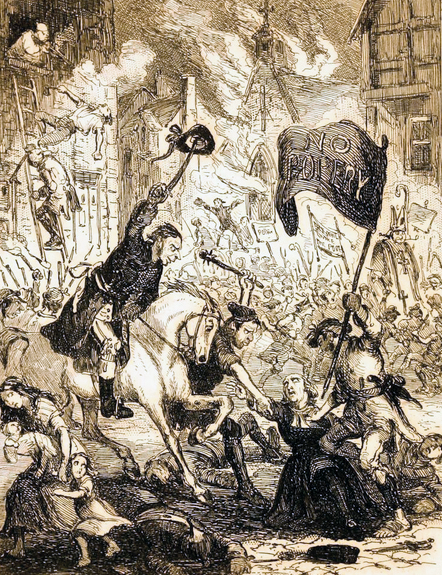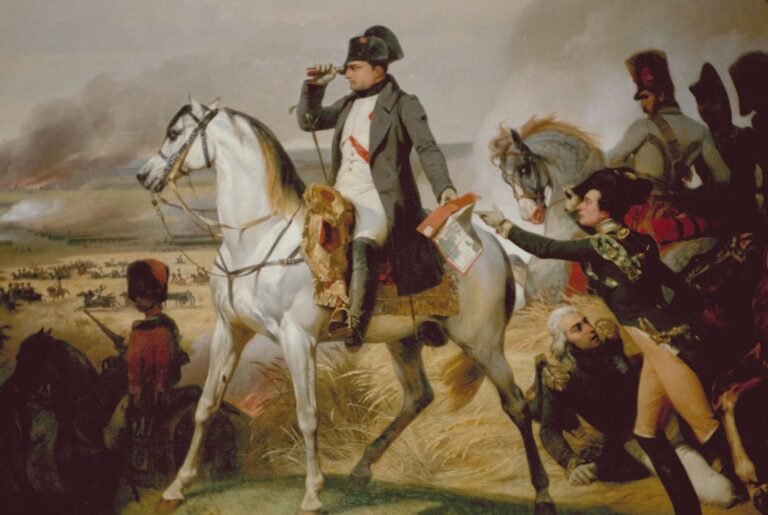William Pitt the Younger was a remarkable British statesman. He became Prime Minister at only 24.
His leadership during turbulent times left a lasting impact on Britain. Born in 1759, Pitt was immersed in politics from a young age. His father, William Pitt the Elder, was also a notable Prime Minister. Pitt the Younger navigated Britain through wars with France and economic challenges.
His policies shaped modern governance and fiscal practices. Despite his youth, Pitt’s intelligence and determination earned him respect. His legacy as a leader, reformer, and strategist continues to influence political thought today. In this blog post, we will explore the life and achievements of William Pitt the Younger, understanding how he shaped the course of British history.
Early Life And Education
William Pitt the Younger was a prominent British statesman. His early life and education laid the foundation for his remarkable career. Let’s explore his background and academic achievements.
Family Background
William Pitt the Younger was born on May 28, 1759. He came from a politically influential family. His father, William Pitt the Elder, was also a Prime Minister of Great Britain. His mother, Hester Grenville, was the daughter of an influential family. This environment nurtured his political ambitions from a young age.
Academic Achievements
William Pitt the Younger showed great promise in his studies. At age 14, he entered Pembroke College, Cambridge. His dedication to learning impressed his tutors. By age 17, he graduated with a degree in Arts. His keen interest in politics and law was evident early on.
Below is a brief overview of his academic milestones:
| Age | Milestone |
|---|---|
| 14 | Entered Pembroke College, Cambridge |
| 17 | Graduated with a degree in Arts |
His education did not end there. He continued to study law, which further prepared him for his future roles in government.
Rise To Power
William Pitt the Younger stands as one of Britain’s most notable Prime Ministers. His journey to power is fascinating. He was young, smart, and determined. Pitt’s rise changed British politics forever.
First Steps In Politics
William Pitt entered politics at just 21 years old. He was elected as the Member of Parliament for Appleby. His skills and dedication quickly impressed many. He gave his first speech in the House of Commons in 1781. It was clear he had a natural talent for politics.
Pitt’s father, William Pitt the Elder, was also a Prime Minister. This background helped him a lot. People expected great things from him. He did not disappoint.
Becoming Prime Minister
At the age of 24, Pitt became the youngest Prime Minister in British history. He took office in 1783. Many doubted his ability due to his age. Pitt proved them wrong. He was wise beyond his years.
Pitt’s leadership brought stability to Britain. He managed the country’s finances well. His policies helped Britain during tough times. Under his leadership, Britain thrived.
Economic Reforms
William Pitt the Younger is known for his significant economic reforms during his tenure as Prime Minister of Britain. These reforms played a crucial role in stabilizing the British economy. His strategies aimed at strengthening the nation’s financial standing. Two key areas of his economic reforms were taxation policies and trade and commerce.
Taxation Policies
Pitt introduced innovative taxation measures to increase government revenue. He implemented income tax, a novel idea at the time. This tax targeted the wealthy, ensuring a more equitable distribution of the tax burden. Pitt also reformed the system of indirect taxes. He focused on increasing efficiency and reducing corruption. These measures helped stabilize the economy and fund military campaigns.
Trade And Commerce
Pitt’s economic reforms extended to trade and commerce. He aimed to boost British trade through free trade agreements. He negotiated the Eden Treaty with France, reducing tariffs on goods. This agreement made British goods more competitive in Europe. Pitt also worked on reducing trade barriers within the British Empire. His policies encouraged commerce and strengthened economic ties with colonies. These efforts contributed to the growth of British industry and commerce.
War And Foreign Policy
William Pitt the Younger played a crucial role during a turbulent time in British history. His time as Prime Minister was marked by significant conflicts and strategic alliances. This period was dominated by the war against France and his foreign policy decisions.
Conflict With France
The French Revolution posed a great threat to Britain. Pitt recognized this and took decisive action. In 1793, Britain declared war on France. The war was long and challenging. Pitt’s government worked tirelessly to defend British interests. The conflict with France shaped much of his foreign policy.
Alliance Strategies
Pitt knew alliances were key to success. He formed coalitions with other European powers. These alliances were crucial in countering the French threat. Pitt also strengthened ties with Prussia and Austria. This network of alliances helped Britain stand firm. By working with allies, Pitt aimed to secure peace and stability.
Domestic Policies
William Pitt the Younger is known for his domestic policies. These policies had a lasting impact on British society. His approach to governance was both innovative and reformative. Pitt aimed to strengthen the administrative framework. He also focused on addressing social issues of the time.
Administrative Reforms
Pitt the Younger made significant administrative reforms. He sought to reduce corruption and improve efficiency. One of his key reforms was the creation of new offices. These offices helped streamline government operations. Pitt also introduced measures to improve tax collection. This increased revenue and reduced public debt.
Social Issues
Pitt showed concern for social issues. He recognized the need for social stability. Pitt supported measures to improve public health. He also promoted education and welfare. These actions aimed to improve the lives of the poor. Pitt’s policies laid the groundwork for future social reforms. His efforts in this area were forward-thinking and impactful.
Health Challenges
William Pitt the Younger, an iconic British Prime Minister, faced many health challenges. These struggles began in his youth and continued throughout his life. His delicate health impacted his personal life and his leadership style. Let’s delve into the specifics of his health challenges.
Personal Struggles
William Pitt the Younger suffered from chronic illness. He had frequent bouts of ill health, including gout and mental stress. Gout caused him severe pain and restricted his movement. He also experienced anxiety and depression, which were less understood at that time.
These health issues took a toll on his personal life. He never married or had children, which some historians attribute to his health. His lifestyle was affected, as he often needed rest and medical attention. Despite these struggles, he remained dedicated to his duties.
Impact On Leadership
Pitt’s health challenges influenced his leadership. He often worked from home due to his illnesses. This limited his public appearances and direct interactions. Yet, he was known for his sharp mind and strategic thinking.
His health issues also made him more resilient. He learned to work under pressure and manage stress. His ability to lead despite his conditions earned him respect. His determination and perseverance became a hallmark of his leadership.
In summary, William Pitt the Younger’s health challenges shaped his life and leadership. They tested his limits but also highlighted his strengths.
Legacy And Impact
William Pitt the Younger left a lasting mark on British history. His leadership style and policies influenced many future leaders. The long-term effects of his tenure continue to shape political thought and practice.
Influence On Future Leaders
William Pitt the Younger was a beacon for future British leaders. He became Prime Minister at just 24 years old. This young age inspired many to believe in the power of youth in politics.
Pitt’s policies on finance and trade were forward-thinking. Future leaders studied his methods to improve their own policies. His approach to economic reform became a model for fiscal responsibility.
- Pitt’s emphasis on strong financial management
- His support for free trade
- His efforts to reduce the national debt
These elements became key points of reference for those who followed in his footsteps.
Long-term Effects
The long-term effects of Pitt’s policies are still visible today. His work in finance laid the groundwork for modern economic policy. He established the Sinking Fund to reduce national debt, an idea still relevant in today’s financial strategies.
Pitt’s support for trade and industry fostered economic growth. He pushed for lower tariffs and fewer trade restrictions. This led to a more open and competitive market. Today, many economies follow this principle of free trade.
Additionally, Pitt’s commitment to reducing corruption set a high standard. His efforts to clean up government practices encouraged transparency. This legacy of integrity influences how governments operate today.
| Legacy Aspect | Impact |
|---|---|
| Financial Management | Modern economic policies |
| Trade Policies | Open and competitive markets |
| Government Integrity | Transparency and reduced corruption |
Pitt the Younger’s legacy is rich and multifaceted. His influence on finance, trade, and governance is undeniable. Future leaders continue to draw inspiration from his remarkable tenure.
Death And Commemoration
William Pitt the Younger, a prominent British Prime Minister, passed away in 1806 at age 46. His legacy lives on through numerous statues and memorials across the UK.
William Pitt the Younger, a towering figure in British politics, left a lasting legacy. His contributions to the nation are remembered even today. This section explores his final days and the memorials that honor his memory.
Final Days
William Pitt the Younger faced many challenges in his final days. His health deteriorated rapidly due to stress and financial troubles. He suffered from a severe peptic ulcer, which caused immense pain. Despite his illness, he continued to work tirelessly for the country. He passed away on January 23, 1806, at the age of 46.
Memorials And Honors
After his death, many memorials were erected to honor William Pitt the Younger. One of the most notable is the statue in Hanover Square, London. Another prominent memorial is in Westminster Abbey, where he is buried. These memorials serve as a testament to his significant contributions. His legacy is also commemorated through various plaques and historical markers across the country.
FAQs
Who Was William Pitt The Younger?
William Pitt the Younger was a British Prime Minister. He served from 1783 to 1801 and again from 1804 to 1806. He is known for his fiscal reforms.
What Did William Pitt The Younger Achieve?
William Pitt the Younger achieved significant fiscal reforms. He also strengthened the British economy and led the country during the French Revolutionary Wars.
Why Is William Pitt The Younger Important?
William Pitt the Younger is important for his leadership during turbulent times. His policies helped stabilize Britain’s economy and government.
When Did William Pitt The Younger Become Prime Minister?
William Pitt the Younger became Prime Minister in December 1783. He was just 24 years old, making him the youngest Prime Minister in British history.
Conclusion
William Pitt the Younger led with vision. His reforms shaped Britain significantly. He faced challenges but remained steadfast. His leadership inspired many during tough times. Learning about his life offers valuable lessons. His legacy continues to influence politics today. Reflect on his achievements and challenges.
William Pitt the Younger, a true statesman, left an enduring mark on history.








